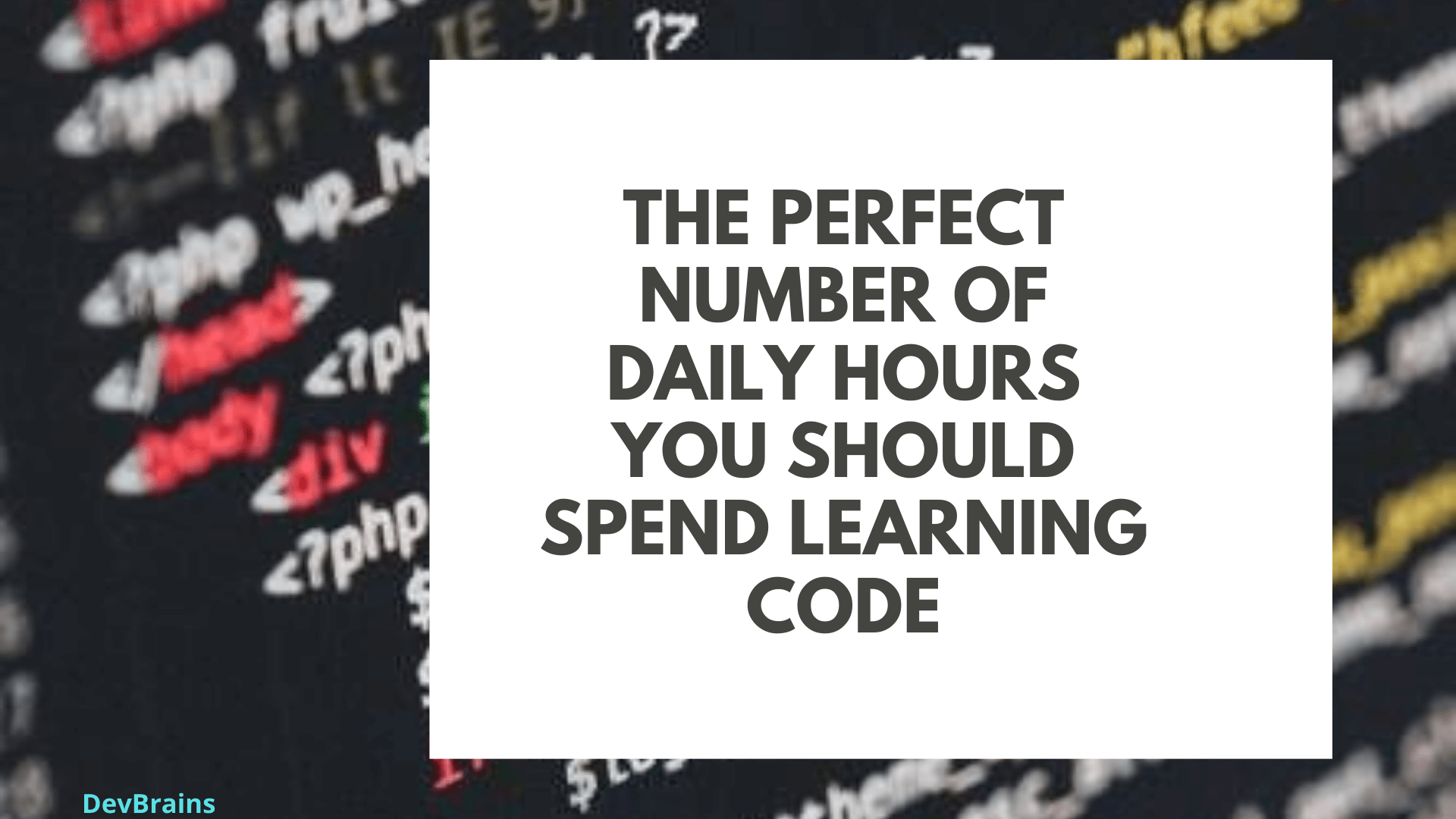The Perfect Number of Daily Hours You Should Spend Learning Code
IT


We have some challenges for you!!